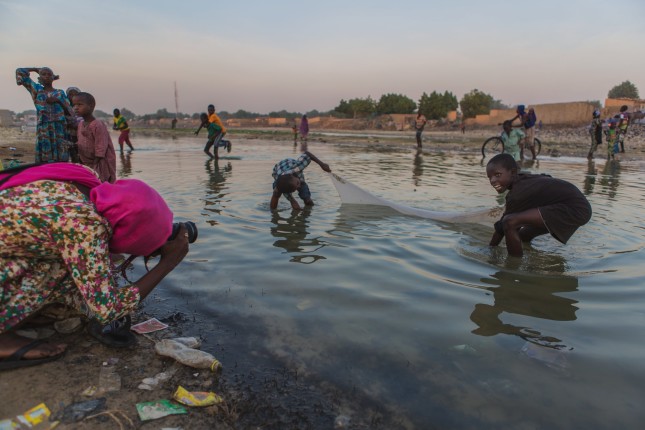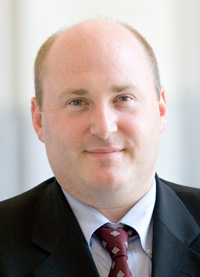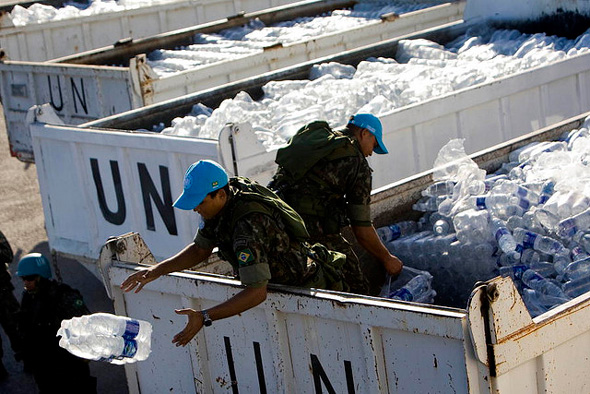
Geoffrey D. Dabelko
Geoffrey D. Dabelko is a senior advisor to the Wilson Center’s Environmental Change and Security Program, which he directed from 1997 to 2012, and professor and director of the Environmental Studies Program at Ohio University’s Voinovich School of Leadership and Public Affairs.
He currently works on the Resilience for Peace Project, a Wilson Center effort supported by USAID, and does research focused on climate change, natural resources, and security as well as environmental pathways to confidence- and peace-building, with a special emphasis on water resources.
Geoff is an IPCC lead author for the 5th assessment (Working Group II, Chapter 12 “Human Security”); co-editor of Environmental Peacemaking and Green Planet Blues: Critical Perspectives on Global Environmental Politics; and a member of the UN Environment Program’s Expert Advisory Group on Environment, Conflict, and Peacebuilding. He holds an AB in Political Science from Duke University and a PhD in Government and Politics from the University of Maryland.
Twitter: @GeoffDabelko
Email: Dabelkog@Ohio.edu
-
Creating an Environment of Peace Means Avoiding Backdraft
›
The much-needed transition to a zero carbon, green economy offers opportunities to contribute to peace, but only if the conflict risks of transition are understood and managed to produce a just and peaceful transition. That means minimizing “backdraft”—the unintended negative impacts of transition that are a key obstacle to that goal.
-
In a Time of Competing Crises, Environmental Action Matters More than Ever
›Guest Contributor // June 3, 2022 // By Richard Black, Cedric de Coning, Geoffrey D. Dabelko, Hafsa Maalim, Melvis Ndiloseh, Dan Smith & Caspar Trimmer
Last week saw the launch of SIPRI’s major policy report Environment of Peace: Security in a New Era of Risk, looking at how to manage the growing risks emerging at the nexus of environmental degradation, peace and security.
-
Environmental Defenders Are Being Murdered at an Unprecedented Rate, Says UN Special Rapporteur
›
The Earth’s front-line defenders are disappearing at an astonishing rate. On average three environmental activists were killed each week in 2015, according to a recent report from the United Nations special rapporteur on the situation of human rights defenders. Global Witness, an international NGO that documents natural resource extraction, corruption, and violence, reports a 59 percent increase in deaths last year compared to 2014. In total, 185 killings of environmental defenders were recorded by Global Witness in 2015.
-
Backdraft: The Conflict Potential of Climate Change Adaptation and Mitigation (ECSP Report 14)
›Amid the growing number of reports warning that climate change could threaten national security, another potentially dangerous – but counterintuitive – dimension has been largely ignored. Could efforts to reduce our carbon footprint and lower our vulnerability to climate change inadvertently exacerbate existing conflicts – or create new ones?
-
Seven Ways Seven Billion People Affect the Environment and Security (Policy Brief)
›The Wilson Center Policy Briefs are a series of short analyses of critical global issues facing the next administration that will run until inauguration day.
Seven billion people now live on Earth, only a dozen years after the global population hit six billion. But this milestone is not about sheer numbers. Demographic trends will significantly affect the planet’s resources and people’s security.
-
Best of Both Worlds: Moving On, But Staying With ECSP
›August 17, 2012 // By Geoffrey D. Dabelko
I have a bit of news to share. After 15 years at the Wilson Center, I will be moving back to my home town of Athens, Ohio, next week. This fall I will become a professor at Ohio University’s Voinovich School of Leadership and Public Affairs, where I will serve as director of environmental studies and work in their campus-wide Consortium on Energy, Economics, and the Environment.
I am very pleased that I will continue working as a senior advisor to the Environmental Change and Security Program, as both the university and the Wilson Center are eager for me to stay connected on current projects and foster new collaborations. This new role will certainly evolve over time and I look forward to continuing to work with all of you from this different perch.
-
First Impressions: Four Takeaways from the Global Water Security Intelligence Assessment
›March 27, 2012 // By Geoffrey D. Dabelko
The just-released unclassified National Intelligence Council report on water and security is a very positive contribution to understanding very complex and interconnected ecological, social, economic, and political issues.
-
Military-to-Military Environmental Cooperation: Still a Good Idea for China and the United States
›March 1, 2012 // By Geoffrey D. Dabelko
As Washington begins to assess the recent visit of Chinese Vice President Xi Jinping, who is expected to become president of China early next year, the search for ways to build confidence between the two powers is on the table yet again.









